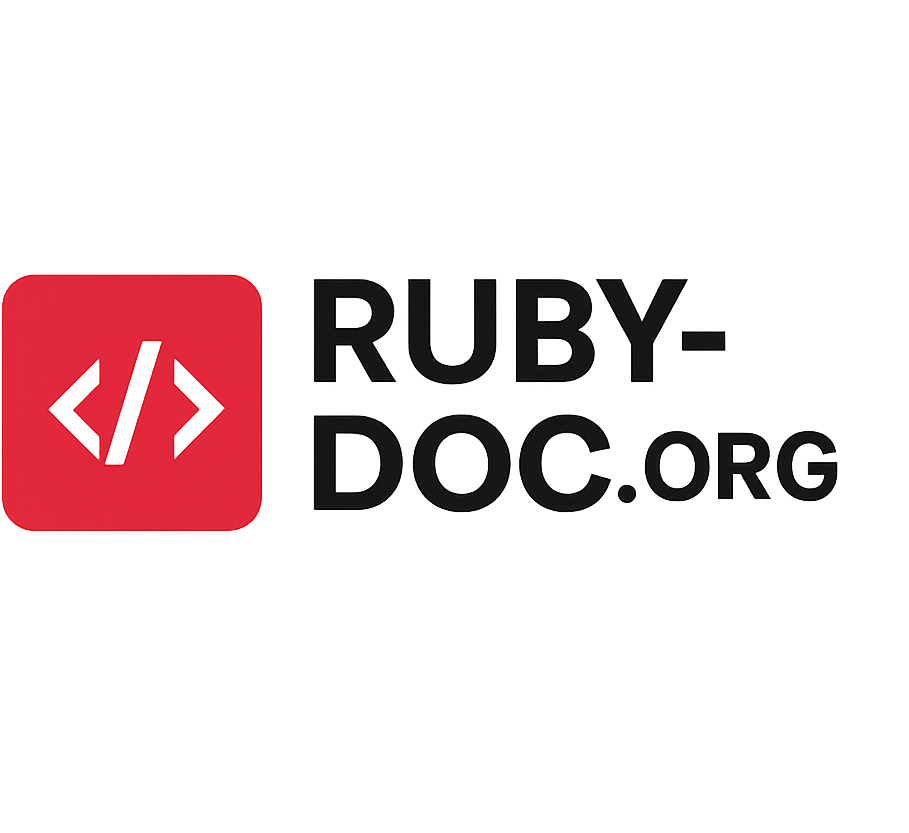The question, "is Ruby Franke mentally ill?" has been on many people's minds, especially with recent public events unfolding. It's a query that naturally arises when we see behaviors that seem hard to grasp, or actions that appear to go against common understanding. Public figures, perhaps more than anyone, often find their personal lives and perceived well-being discussed openly, and this can be a very sensitive area, you know. People are, quite naturally, looking for ways to make sense of things that just don't fit neatly into their expectations.
When we observe situations that are perplexing, it's almost a human tendency to try and find an explanation, a reason for what we see. This often leads to speculation about mental health, which, in a way, is a very complex topic. However, it's really important to remember that mental health is a deeply personal and medical matter. It involves intricate details and professional insights that are not usually available to the public.
This article aims to explore the question surrounding Ruby Franke's mental state not by offering a diagnosis – because that's something only qualified professionals can do – but by looking at the broader conversation. We'll consider the impact of public speculation, the significance of expert evaluation, and how we can approach such sensitive topics with a bit more thoughtfulness and responsibility. So, let's talk about it.
Table of Contents
- Who is Ruby Franke? A Brief Look
- The Question of Mental Health: What Experts Say
- Understanding Mental Well-being: A Broader View
- Frequently Asked Questions
- Moving Forward: Fostering Responsible Conversations
Who is Ruby Franke? A Brief Look
Ruby Franke gained a significant following as a family vlogger, sharing her daily life and parenting approaches with a large audience online. Her content, which featured her husband and their six children, really attracted a lot of viewers over several years. She became quite a recognizable figure in the digital content creation scene, you know, building a community around her family's experiences.
However, recent events have brought her into the public eye for very different reasons, leading to widespread concern and legal proceedings. These developments have, quite naturally, prompted many to ask deeper questions about the circumstances and the individuals involved. It's a situation that has prompted a lot of discussion, and very serious questions.
The shift from a popular online personality to someone facing serious legal accusations has been a stark contrast for many who followed her. This dramatic change, in a way, highlights how public perception can shift so quickly, especially when unexpected details come to light. It really makes people wonder about the hidden sides of public life.
Personal Details and Background
For those curious about the personal details surrounding Ruby Franke, here's a quick overview of publicly available information. It's important to remember that this table provides basic biographical facts, not insights into her mental state, which is a private and medical matter, obviously. This information is generally what has been reported in the news.
| Name | Ruby Franke |
| Known For | Family vlogging on YouTube |
| Family Status | Married, six children (based on public records) |
| Recent Public Events | Arrest and charges related to child abuse (as reported by news outlets) |
| Current Status | Facing legal proceedings (as of recent reports) |
This table, in a way, offers a snapshot of the publicly known aspects of her life and recent troubles. It's just the basic facts, nothing more, you know. The details surrounding her case are still unfolding in the legal system, and that's where the official information will eventually come from.
The Question of Mental Health: What Experts Say
When discussions turn to whether someone, like Ruby Franke, is mentally ill, it's absolutely crucial to rely on the insights of mental health professionals. These are the people with the training and experience to truly understand and assess complex human psychology. They have, you know, very specific methods for evaluating someone's well-being.
Mental illness isn't a simple concept; it's a broad term covering a wide range of conditions that affect a person's thinking, feeling, mood, or behavior. Diagnosing such conditions requires a thorough evaluation, often involving clinical interviews, psychological tests, and a deep understanding of an individual's history and current circumstances. It's a very detailed process, actually.
Experts emphasize that behavior alone, especially behavior observed through media or public reports, cannot definitively determine a mental health diagnosis. There are many reasons why people act in certain ways, and only a qualified professional can truly sort through those complexities. It's a bit like trying to understand a very intricate system without all the parts, you know.
Why Online Diagnosis Isn't the Answer
The internet, for all its amazing connectivity, also brings challenges, particularly when it comes to sensitive topics like mental health. It's very tempting for people to try and diagnose public figures based on what they see or read online, but this is incredibly problematic and, quite frankly, inaccurate. We just don't have enough information, obviously.
Firstly, an accurate diagnosis requires direct interaction with a person, usually over time, in a clinical setting. Mental health professionals gather information from various sources, including the individual themselves, their family (with permission), and medical history. This kind of comprehensive picture is simply not available to the public, you see.
Secondly, armchair diagnoses can be harmful. They can perpetuate stereotypes about mental illness, reduce complex conditions to simple labels, and even contribute to stigma. When we label someone without proper assessment, we often overlook the real person and their unique struggles, and that's not helpful at all, you know. It's a disservice to everyone involved.
Moreover, speculating about someone's mental health can be deeply distressing for the individual and their loved ones. It can complicate legal proceedings and make it harder for the person to receive appropriate care if needed. So, really, it's best to leave diagnosis to the professionals, who are equipped to handle such delicate matters with care and precision. It's just the right thing to do.
The Impact of Public Discourse
The way we talk about public figures and their perceived mental health has a very real impact, not just on the individual, but on society as a whole. When discussions are fueled by speculation rather than facts, it can lead to a lot of misinformation and misunderstanding. This can, in a way, shape public opinion unfairly.
A more thoughtful public discourse would focus on the actions and their consequences, rather than attempting to assign a medical label. It would acknowledge the limits of our knowledge and prioritize compassion and factual reporting. This approach helps to foster a more responsible media environment, which is very important, obviously.
Just as a dynamic, open-source programming language like Ruby aims for a "balance between simplicity and power" in its design, understanding complex human situations, especially those related to mental well-being, requires a similar focus on clear, structured thinking and careful observation. It's about processing information responsibly, much like a system that "explores the essential classes and modules" to grasp its full scope. We need to be careful with how we interpret human "syntax" and "structure."
Public conversations around mental health can also serve as an opportunity to educate. By highlighting the proper channels for diagnosis and support, we can encourage people to seek help for themselves or others in a safe and appropriate manner. It's a chance to promote genuine mental health literacy, which is something we really need more of, you know.
Understanding Mental Well-being: A Broader View
Beyond specific cases, it's valuable to cultivate a general understanding of mental well-being. This involves recognizing that everyone experiences ups and downs in their emotional health, and that seeking help for mental health concerns is a sign of strength, not weakness. It's a bit like learning a new skill; it takes effort and practice, but the rewards are significant, you know.
Mental health is a spectrum, and people can move along it throughout their lives. Factors like stress, trauma, genetics, and life events can all play a role in someone's mental state. It's a very intricate interplay of many different things, so it's rarely just one cause.
Promoting open conversations about mental health, free from judgment and stigma, is a vital step toward creating a more supportive society. When people feel comfortable discussing their struggles, they are much more likely to reach out for the help they need. This kind of openness, you see, can truly revolutionize how we approach well-being.
Seeking Support and Information
If you or someone you know is struggling with mental health, there are many resources available that can provide professional support and accurate information. These resources are designed to help individuals understand their feelings, get a proper assessment, and develop strategies for coping and healing. It's really important to know where to turn.
Organizations dedicated to mental health offer hotlines, online resources, and directories of qualified professionals. They can guide you through the process of finding a therapist, psychiatrist, or support group that fits your needs. This kind of assistance is very valuable, obviously, for anyone feeling overwhelmed.
Remember, just like learning a new skill, such as playing with Ruby code in "interactive sessions" is a "terrific way to learn the language," engaging with mental health support can be a terrific way to understand and manage your emotional landscape. It's about exploring the "core classes and modules" of your own well-being. A good starting point for reliable information is the National Institute of Mental Health (NIMH), which provides comprehensive resources on various conditions and treatments.
Talking to a trusted friend or family member can also be a helpful first step, but for a diagnosis or treatment plan, professional guidance is always the best path. It's about getting the right kind of help for your unique situation, you know. There's no shame in seeking support.
The Role of Professional Assessment
The importance of professional assessment in determining mental illness cannot be overstated. Only licensed psychiatrists, psychologists, and other qualified mental health practitioners possess the expertise to conduct thorough evaluations and make informed diagnoses. They have, you know, spent years training for this.
These professionals follow ethical guidelines and use evidence-based tools to assess a person's mental state. Their assessments consider a wide range of factors, including symptoms, personal history, family background, and any other relevant medical information. It's a very detailed and careful process, honestly.
A diagnosis, when made by a professional, is not just a label; it's a tool that guides treatment and support. It helps individuals and their care teams understand what might be happening and how best to address it. Without this proper assessment, treatments can be ineffective or even harmful, which is something we definitely want to avoid.
So, when questions like "is Ruby Franke mentally ill" arise, the most responsible answer is that only a qualified professional who has personally evaluated her could ever truly say. Public speculation, however well-intentioned, simply lacks the necessary depth and expertise to provide an accurate answer. It's just the way it is.
Frequently Asked Questions
Here are some common questions people often ask about mental health and public figures, along with some helpful perspectives.
Can I diagnose someone's mental illness based on their public behavior?
No, you really can't. Diagnosing mental illness requires a comprehensive evaluation by a trained mental health professional. Public behavior, while sometimes indicative of distress, doesn't provide enough information for an accurate medical diagnosis. It's just not possible to know the full story from afar, you know.
What should I do if I'm concerned about someone's mental health?
If you're concerned about someone, the best thing to do is encourage them to seek professional help. You can offer to support them in finding resources or accompanying them to an appointment. For immediate crisis, contact emergency services or a mental health crisis line. Simply put, professional help is the way to go.
How can I learn more about mental well-being?
There are many reputable sources for learning about mental well-being, including national mental health organizations, university psychology departments, and licensed therapists. Reading books, attending workshops, or even taking online courses from credible institutions can be very helpful. Learn more about mental well-being on our site, and you can also link to this page understanding mental health for more insights. It's really about seeking out reliable information.
Moving Forward: Fostering Responsible Conversations
In situations where public figures face legal or personal challenges that raise questions about their mental state, it's a good opportunity for us all to practice more responsible discourse. This means resisting the urge to label or diagnose, and instead, focusing on the facts of the situation and the importance of professional evaluation. It's a chance to grow, in a way.
By promoting empathy and understanding, we can help reduce the stigma often associated with mental illness. When we approach these discussions with care, we contribute to a society where individuals feel safer seeking help for their own mental health concerns, without fear of judgment. This kind of environment is very beneficial for everyone, you know.
Ultimately, the question "is Ruby Franke mentally ill?" belongs in the hands of medical professionals. For the rest of us, our role is to remain informed, compassionate, and committed to fostering conversations that uplift and educate, rather than speculate or condemn. It's about building a better, more supportive community, basically.



